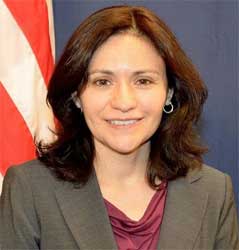Snapchat settles FTC charge that it deceived users

Terms of the proposed settlement include Snapchat ramping up privacy and security at its popular self destructing messaging service and having an independent monitor track its efforts for the next 20 years.
The Southern California-based service has gained notoriety for the app that lets people send smartphone photos or video snippets timed to self-destruct 10 seconds or less after being opened.
Snapchat rocketed to popularity after the initial app was released in September of 2011.
Its growth initially sparked fears that, in a world of selfies, it would provide a false sense of security for teenagers thinking of sexting risque photos.
The US Federal Trade Commission said it had launched an investigation into whether Snapchat was not honest about how much data it collected from users, how well it protected them, and whether disappearing messages could be copied or resurrected.
"If a company markets privacy and security as key selling points in pitching its service to consumers, it is critical that it keep those promises," FTC Chairman Edith Ramirez said in a release.
Images could be saved
An FTC complaint charged that Snapchat misled users on a number of fronts, including how "ephemeral" smartphone pictures or video snippets referred to as "snaps" actually are.
Snapchat boasted of letting people send images that "disappear forever" seconds after being viewed by recipients, neglecting to inform them that there are ways people could save pictures indefinitely, according to the FTC.
People who get snaps can use third-party applications to save images; grab screen-shots, or even just take another picture using a camera.
Concerns expressed by regulators included the extent to which snaps could actually be erased after viewing; how well Snapchat lets senders know when messages intended for destruction were saved, and how open it is about information it collects from users.
The FTC complaint contended that Snapchat gathered contact information from address books of people accessing the service form iPhones, iPads, or iPods without telling them.
Regulators blamed Snapchat's failure to effectively secure a Find Friends feature for allowing hackers to breach its database and steal user names and phone numbers of about 4.6m users.
According to the FTC, not fines were announced, but Snapchat could be hit with financial penalties if it doesn't stick with the conditions it agreed to in the settlement.
Snapchat said in an online statement that it entered into the consent decree to address FTC concerns but had pre-emptively resolved most of the concerns raised by regulators.
"While we were focused on building, some things didn't get the attention they could have," Snapchat said. "One of those was being more precise with how we communicated with the Snapchat community," it said
Snapchat said it continues to invest heavily in security and measures to prevent abuse of its service.
The settlement needs the approval of the full commission before it becomes final.
Source: AFP via I-Net Bridge
Source: I-Net Bridge

For more than two decades, I-Net Bridge has been one of South Africa’s preferred electronic providers of innovative solutions, data of the highest calibre, reliable platforms and excellent supporting systems. Our products include workstations, web applications and data feeds packaged with in-depth news and powerful analytical tools empowering clients to make meaningful decisions.
We pride ourselves on our wide variety of in-house skills, encompassing multiple platforms and applications. These skills enable us to not only function as a first class facility, but also design, implement and support all our client needs at a level that confirms I-Net Bridge a leader in its field.
Go to: http://www.inet.co.za





